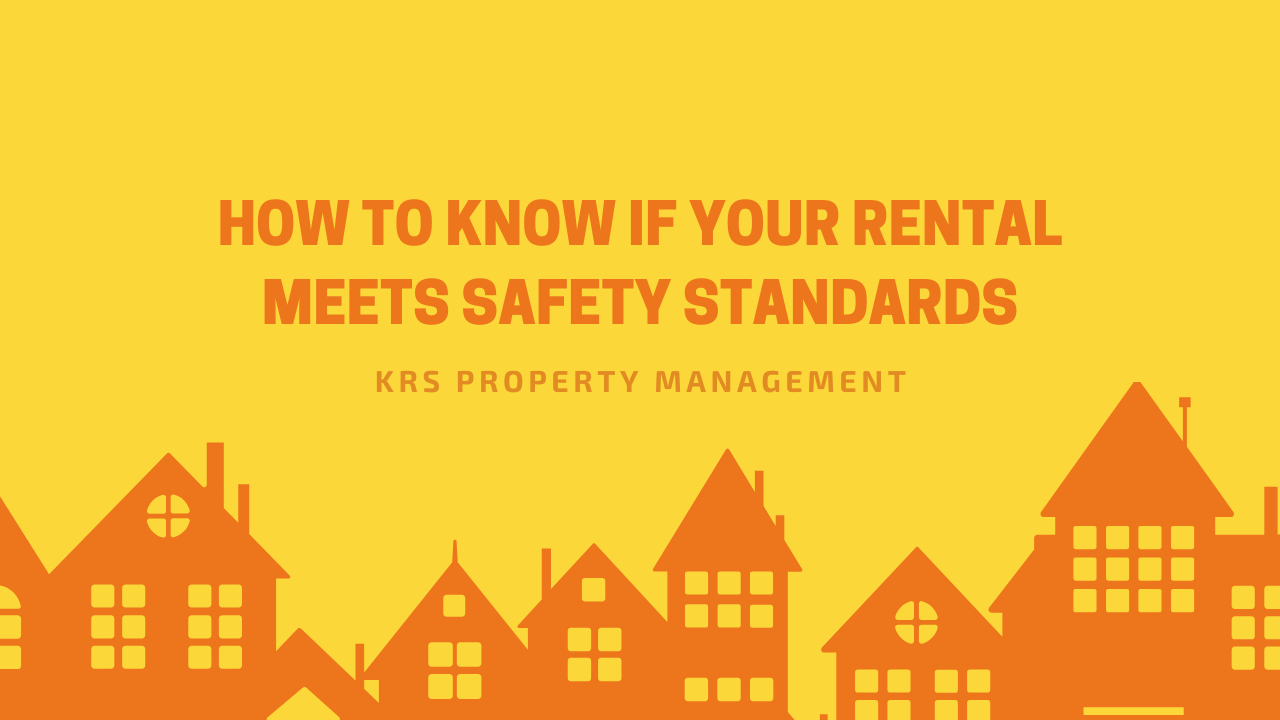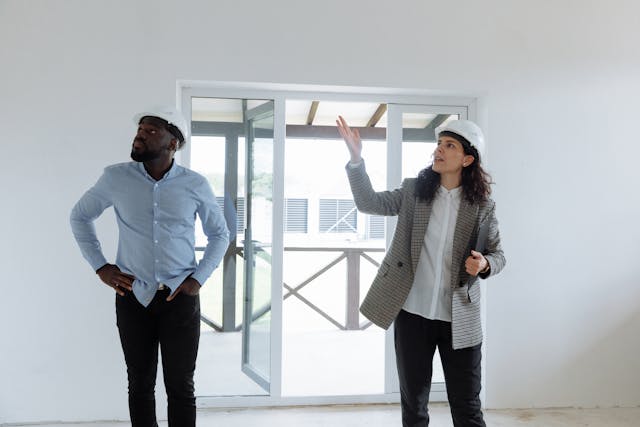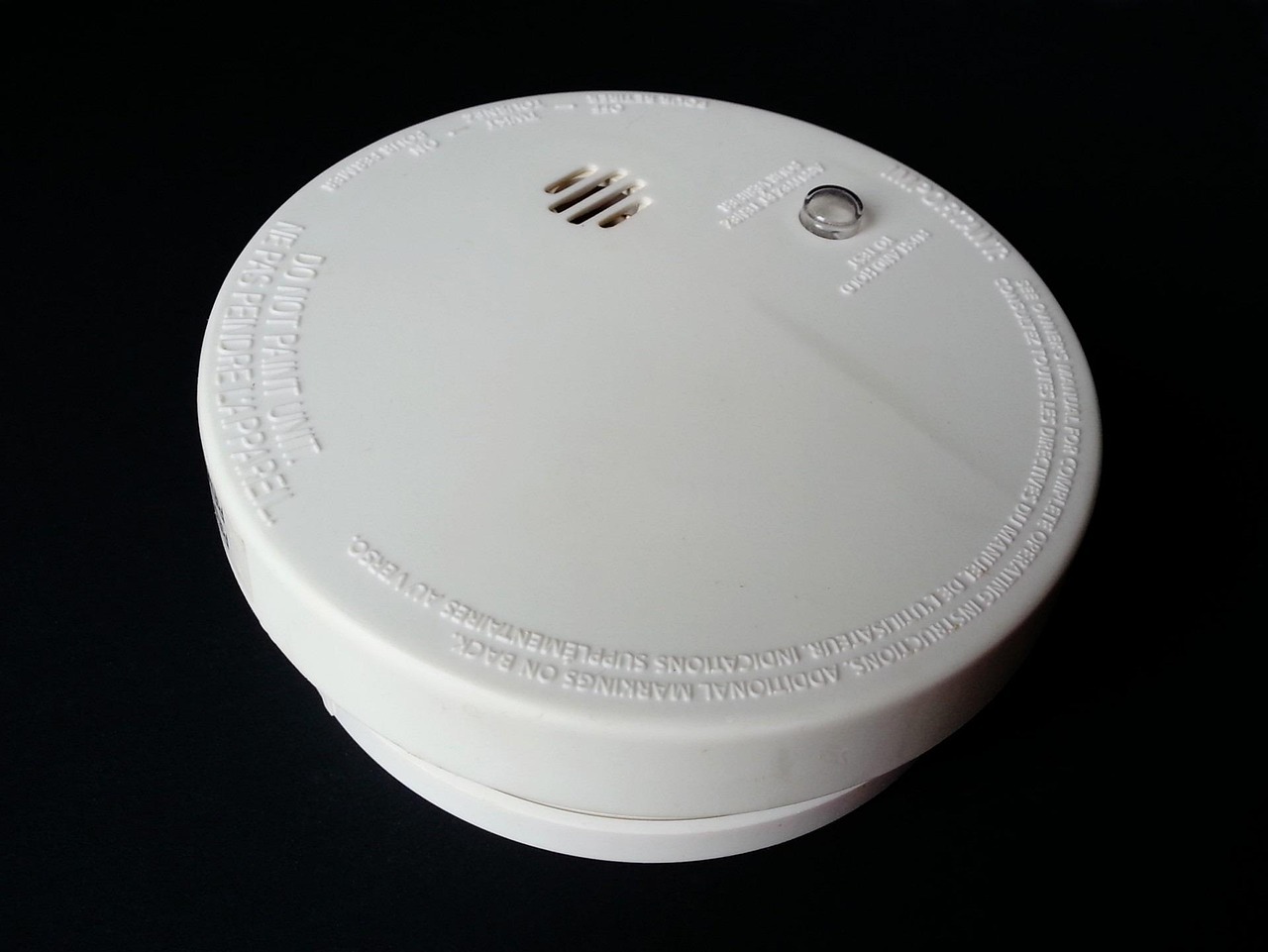
Key Takeaways
Safety is more than compliance: Meeting Virginia’s rental safety standards isn’t just a legal requirement; it’s a moral responsibility that helps build trust and long-term tenant relationships.
Regular inspections are essential: Proactive maintenance and scheduled inspections (move-in, seasonal, drive-by, move-out) help catch issues early and keep your property in top shape.
Educate and equip tenants: Providing safety tools like smoke detectors and emergency contacts, and informing tenants of their responsibilities, helps maintain a safe, healthy rental environment.
Is your rental property truly safe—or just meeting the bare minimum? At KRS Charlottesville, we believe that safety goes beyond compliance.
As property managers, we know how important it is for landlords to provide not just livable, but truly safe spaces for tenants. Virginia’s landlord-tenant laws outline the minimum safety requirements, but meeting those standards is more than just a legal duty, it’s a moral one.
When tenants feel secure and cared for, they’re more likely to stay long-term, take better care of the property, and build trust with you as the landlord. It’s a win-win.
In this blog, we’ll break down what you need to know to ensure your rental property meets essential safety standards.
Ensure Legal Compliance
As already mentioned, state landlord-tenant law defines the minimum safety standards a rental property must meet to be considered habitable.
As a landlord, you cannot rent out a property with any of the following safety issues:
Major cracks in the foundation, walls, or floors.
A leaky roof or severe water damage.
Unsafe flooring or stairs.
Non-functional plumbing systems.
Faulty electrical systems.
Severe pest infestations.
Gas or carbon monoxide leaks.
Non-working locks on doors and windows.
If your property has any of these issues, renting it out would be unlawful. And if any of them arise while a tenant is living there, you’re legally required to address the problem promptly.
That’s why regular property inspections are essential for landlording success. Ideally, inspect your rental when a tenant moves in, when the seasons change, during drive-bys, and at move-out. This helps you catch problems early—before they turn into serious and costly repairs.
In Virginia, for instance, the state’s warranty of habitability is contained under the state’s Residential Landlord and Tenant Act. Among other things, you must ensure the property:
Has heating during the cold months.
Working carbon monoxide detectors.
Working plumbing fixtures.
Has no electrical issues.
Is mold-free.
Is pest-free.
Additionally, make sure to check with the local municipality codes to ensure compliance as well.
Inspect and Maintain the Property Regularly.
Regular property inspections will ensure that the property is always in great shape. And as already mentioned, make sure to conduct various types of inspections for the best outcome. That is: move-in inspection, drive-by inspection, seasonal inspection, and move-out inspection.
Ideally, work with a licensed professional who knows what issues to look for and where to look for them. The inspections should cover a wide array of things, including electrical, plumbing, ventilation, heating, air conditioning, and the unit’s structural integrity.
Being proactive with repairs and maintenance is also important in ensuring your rental meets safety standards. Once notified by a tenant about a maintenance concern, respond swiftly to fix it.
Meet the Fire Safety Standards
Although these may not be required by state law, installing smoke detectors and fire extinguishers in your rental property can help safeguard it against fire damage. Inspect them on a regular basis to ensure functionality.
Place the fire extinguisher in an accessible location and educate your tenant on how and when to use it. Fire escape routes must be kept clear and free of any obstacles to ensure tenants can exit quickly and safely in an emergency.
Meet the Applicable Health and Environmental Standards
In addition to meeting the requisite safety standards, also ensure your property meets the minimum health codes. The following are some of the things you should be on the lookout for during inspections:
Pest infestations of pests like rodents, cockroaches, or bedbugs.
Extensive mold or mildew, which can cause tenants to have certain health issues. Such as allergies and other respiratory problems.
Hazardous substances, like lead-based paint. This can be a concern, especially for homes built before 1978.
Sanitary issues, such as the accumulation of trash and debris, or inadequate trash bins for waste disposal.
Educate the Tenant on Their Responsibilities Regarding Safety
First and foremost, make sure your tenants have your emergency contact details. This should be available 24 hours a day, 7 days a week for emergency contact.
Secondly, educate them on their responsibilities regarding maintaining the unit’s habitability regarding health and safety. You may even want to include these in the lease or in a separate document. Either way, make sure they agree to them and sign.
.jpg)
Benefits of Meeting Your Property’s Safety Standards as a Landlord
There are several important benefits to ensuring your property meets state and local safety standards:
Protect yourself legally: Complying with safety regulations helps you avoid costly fines, legal issues, and damage to your reputation. Staying within the law safeguards your business and peace of mind.
Reduce your risk of liability: By maintaining a safe property, you lower the chances of tenant injuries, accidents, or health problems that could lead to expensive lawsuits or insurance claims.
Encourage tenants to stay long-term: Tenants who feel safe and cared for are more likely to renew their leases and stay long-term, reducing vacancies and turnover costs while maximizing your rental income and ROI.
Preserve property value and minimize costly renovations: Routine inspections and timely maintenance help catch issues early, preventing major repairs or renovations and preserving the condition and value of your investment over time.
Conclusion
As a landlord, one of your top priorities should be ensuring your tenant’s safety and well-being. With the information shared above, you now have a clear understanding of what it takes to meet essential rental property safety standards.
If you have questions or need expert guidance, KRS Charlottesville is here to help. Our team delivers reliable service, proven performance, and prompt communication, so you can enjoy minimal stress and maximum ROI.
Get in touch today to learn more about our full suite of property management services.








